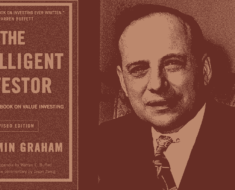Table of Contents
Who Moved My Cheese? by Dr Spencer Johnson
Have you ever observed what you do whilst you are bored? Think of the remaining time you had been ready in line on the supermarket, or looking forward to your meals to be served at a restaurant. How approximately at some stage in your shuttle driving the subway – what had been you doing then?
If you’re crushing goodies or scrolling via your social media feeds for your telephones, you’re now no longer alone. Back to my in advance factor of interest-stealing apps, we had been subconsciously conditioned to are looking for immediate gratification in reaction to boredom.
As our telephones feed us an countless circulate of notifications, we turn out to be continuously switching our interest throughout many tasks. Research from Stanford University shows that this has a poor effect on our cappotential to attention on cognitively-difficult events. Eventually, we turn out to be growing a dependence on distraction as we an increasing number of crave for the feel-proper thing from immediate gratification.
To conquer this, we want to begin turning into greater conscious whilst our interest is drifting away. Many humans take time without work for “virtual detox” vacations, staying farfar from generation and all of the distractions that include it. Others flip to meditation, which permits us to exercise our attention on and focus on our breath and mind. I mainly respect being capable of be aware whilst my thoughts wanders and bringing it lower back softly to the exercise.
Perhaps the fine piece of recommendation presented via way of means of Newport became to take breaks from attention rather than seeking to be much less distracted. We can educate our cappotential to attention, however similar to a muscle, it’s going to get fatigued. Taking breaks from lengthy intervals of attention permits that muscle to get better for any other stretch, enhancing its staying power over time. As Newport elegantly places it, “your cappotential to pay attention is most effective as sturdy as your dedication to educate it”.
Noteworthy charges from Deep Work
“… the variations among professional performers and everyday adults replicate a existence-lengthy duration of planned efforts to enhance overall performance in a selected domain.” – K. Anders Ericsson, on planned exercise
“Knowledge paintings isn’t always an meeting line, and extracting cost from statistics is an interest that’s frequently at odds with busyness, now no longer supported via way of means of it.”
“… whilst you lose attention, your thoughts has a tendency to repair on what can be incorrect together along with your existence rather than what’s proper.”
“the fine moments normally arise whilst a person’s frame or thoughts is stretched to its limits in a voluntary attempt to perform some thing hard and worthwhile.” – Mihaly Csikszentmihalyi, on the “float state”
“If you need to win the conflict for interest, don’t attempt to say ‘no’ to the trivial distractions… attempt to say ‘yes’ to the problem that arouses a terrifying longing, and allow the terrifying longing crowd out the whole lot else.” – David Brooks
“… presenting your aware mind time to relaxation allows your subconscious thoughts to take a shift sorting via your maximum complicated expert demanding situations.”
“Committing to a selected plan for a purpose may also consequently now no longer most effective facilitate attainment of the purpose however additionally loose cognitive sources for different pursuits.” – Psychologists Roy Baumeister and E. J. Masicampo, from “Consider It Done!”
“Structured hobbies… generate precise moves with precise dreams to fill your time.”
“… the bounds to our time necessitate greater cautious considering our organizational habits…”
Closing mind
Following The One Thing and Atomic Habits, Deep Work is the subsequent fine ee-e book on productiveness that I’ve ever examine. Even aleven though the underlying standards are much like the 2 aforementioned books, I discover that Newport is going deeper into explaining the “why” at the back of those concepts. I determined them to be immensely helpful, and it splendidly reinforces the significance of minimizing distractions and specializing in deep paintings to obtain tremendous results.
It’s awesome how a brief parable like this conventional could have a lot depth. “Who Moved My Cheese?” via way of means of Spencer Johnson tells the tale of mice and “little humans” navigating via a maze on the lookout for cheese, that is a illustration of the way we control adjustments in our lives. It makes for a fast and clean examine for that lazy Sunday afternoon over a pleasing heat thin latte, and could make certain to go away you deep in notion as you replicate approximately your personal reviews in coping with extrade. Hopefully this ee-e book will encourage you as a great deal because it did for me in having a refreshed attitude of existence!
I were given this ee-e book as a present from my supervisor remaining Christmas. At that factor in time, I became navigating via a few adjustments in my non-public and expert existence. Being massive on mindfulness and intellectual nicely-being, she have to have notion that this ee-e book can be apt; and the way proper she became! (Also can I upload that books make GREAT presents for lots occasions?)
A brief tale approximately handling adjustments in our lives
Who Moved My Cheese? via way of means of Dr Spencer Johnson is a brief tale proposing mice and “little humans” on their task to look for cheese in a maze. The cheese represents the matters we choice to obtain in existence, together with happiness, success, health, wealth, etc. On the opposite hand, the winding paths of the maze symbolise existence and existence. Finally, the mice and the little humans have special character profiles, which constitute the special methods humans address adjustments of their lives.
At simply below a hundred pages, it makes for a clearly brief examine; I took my time with it so I completed it in days. Clichéd sayings had been allotted nicely at some stage in the text. From one angle, it reads like a bedtime tale for a younger child, coaching him/her approximately having the proper mind-set whilst handling extrade. However, this simplicity additionally gave me a experience of connection to the tale, in addition to a attention that coping with extrade clearly is that easy.
Either manner, I notion this ee-e book became a very good destroy from my traditional reads. Changes are not unusualplace at some stage in existence, and we need to now no longer be strangers to it. Yet, many humans have had demanding situations coping with them as we moved from one segment of existence to any other. I mainly preferred Johnson’s manner of supplying his mind approximately this depend in this kind of easy manner, reminding us that easy answers can resolve complicated problems.
![]()




